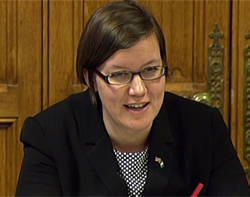 United Kingdom Members of Parliament have warned that a £17 billion ($A31 billion) Public Service pensions age discrimination mistake by the Treasury will take “generations to resolve”.
United Kingdom Members of Parliament have warned that a £17 billion ($A31 billion) Public Service pensions age discrimination mistake by the Treasury will take “generations to resolve”.
A House of Commons Public Accounts Committee (PAC) report stated that the discrimination was only part of a “perfect storm” brewing around Public Service pension costs.
It said the Treasury had done little to identify and manage the stark differences in average pensions between genders and other groups and that it should have foreseen the age discrimination issue that gave rise to the 2018 McCloud judgment.
The McCloud judgement refers to the Court of Appeal’s ruling that the Government’s 2015 public sector pension reforms unlawfully treated existing public sectors differently based upon members’ age on the 1 April 2012.
The PAC also emphasised that whilst the Treasury wanted pension scheme members to pay the estimated £17 billion to address this discrimination, the unlawful reform was “its own mistake — a mistake which could have been avoided by listening to advice and which will take many decades to resolve”.
However, the Committee warned that this was only a small part of the costs to the public purse if the Government failed to address the increasing number of young people unable to afford to plan for a sufficient pension.
It stressed the Treasury seemed “unconcerned about the drop in enrolment by some workers”, warning there was “a danger of a perfect storm” where some young people believed they could not afford pension contributions due to high costs of living, meaning they would retire with a reduced public sector pension.
The PAC also noted that many younger workers would likely continue to pay rent in retirement because they could not afford to buy a home, warning that the cost of supporting this generation would fall on future taxpayers.
Chair of the PAC, Meg Hillier (pictured) said the Treasury’s mistake on pensions reform was a ripple compared to the tsunami of costs to the public purse if the Government failed to address the growing number of young people unable to afford to plan for a proper pension.
“Its lack of curiosity about why nearly a quarter of a million workers are not joining these pension schemes is a concern,” Ms Hillier said.
“Pension planning must be long term; mistakes and poor planning have an impact for decades,” she said.
London, 15 June 2021






